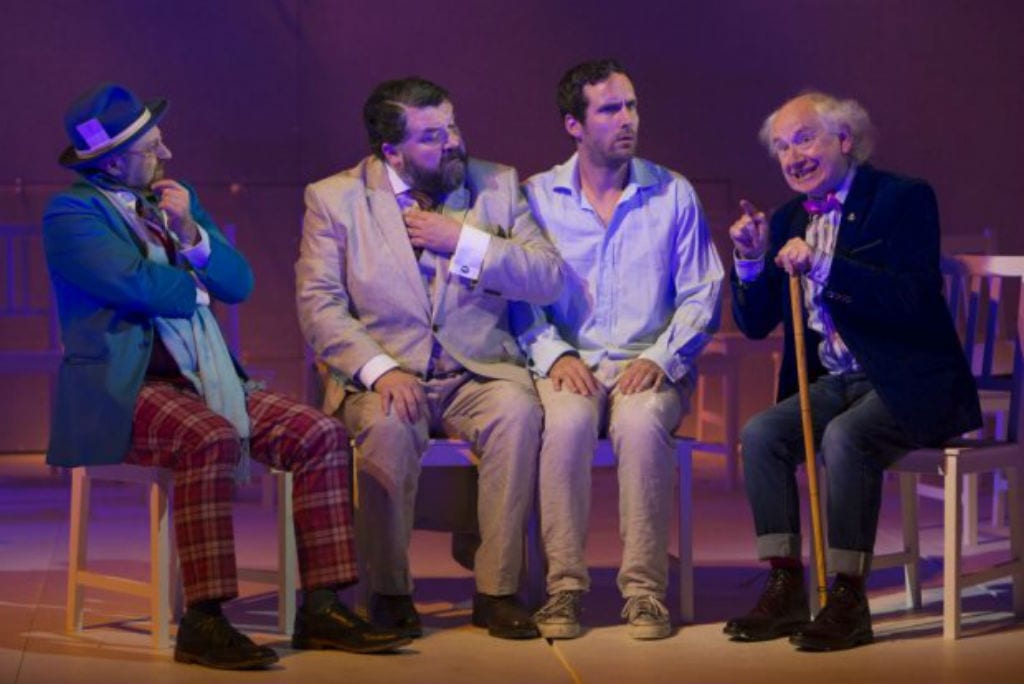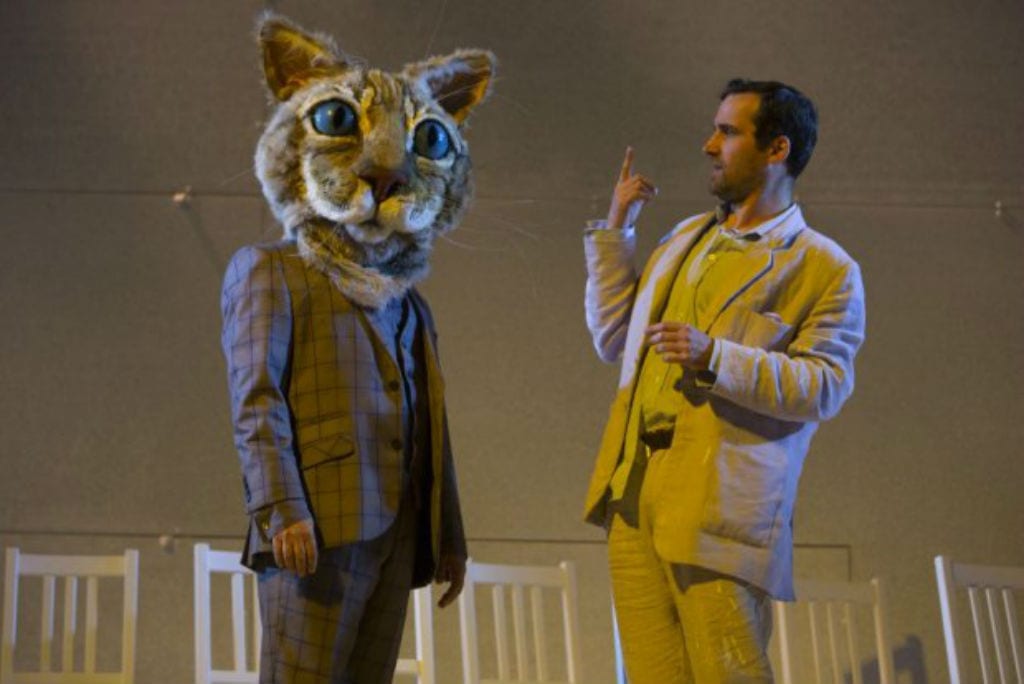With this new production of Rhinoceros, Zinnie Harris and Turkish director Murat Daltaban reaffirm the political potency of Ionesco’s fable about the insidious power of violence and ideology.
The inhabitants of a French village have all fallen prey to an epidemic of ‘rhinoceritis’– one by one, they turn into grey, one (or two)-horned pachyderms. There is no explanation to this transformation and the only man immune to the disease, Bérenger (Robert Jack) is curiously devoid of any heroic quality, except perhaps his desire to remain human, even if he is to be the last one standing.
The stage is entirely white, illuminated by neon lights that give an oneiric, if slightly artificial air to the whole. Tom Piper’s superb set gradually unfolds in successive layers that invade the stage and limit the space left to humans as the rhinoceros, which we hear galloping and bellowing in the distance, turn the town into their playground.
Daltaban’s direction leaves it up to us to decide where we would like the scene to be set: are we in France, in Turkey, or in America? What the production does make achingly clear is that inhumanity pre-exists the rhinoceros’ intrusions. Jean (Steven McNicoll), Bérenger’s friend, is an overbearing, conformist brute. Papatya (Ece Dizdar), whom the protagonist admires from a distance, is treated with infantilizing condescension by her colleague Botard (Sally Reid). The rhinoceros may make the problem more screamingly obvious, but the root of the illness was there long before their arrival, and the cast’s interpretation is successful in portraying a society embittered by lack of compassion and everyday violence.
4
Reviewer's Rating


